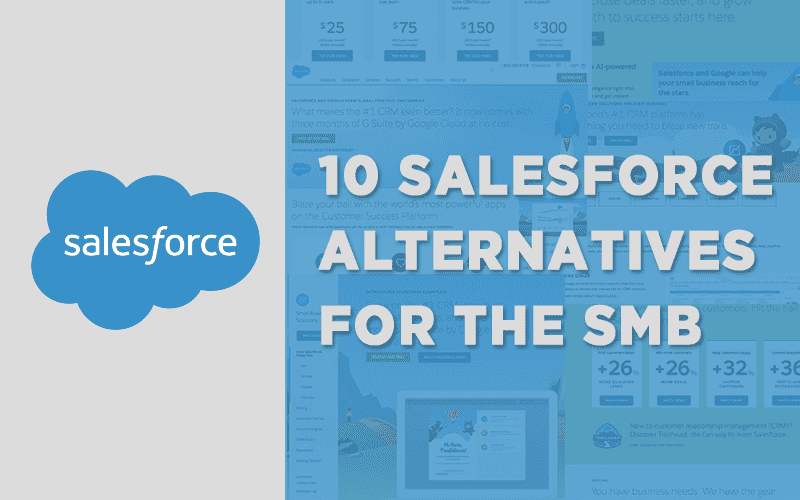Sales is an extremely personal career where it takes time to become a master. There’s always something to improve upon and there’s always something to learn from the more experienced salespeople. All new employees need to be trained to learn the technical and personal aspects of sales.
Starting something new, or over, is tough for anyone. Sales managers, for the most part, recognize this and are often very accommodating; however, I think we all remember the jobs and managers that threw us in the deep end without any advice.
Sometimes it works, but there are much better ways of handling new employees. Training needs to be emphasized from the very beginning, and moreso on the new employee. It might be easier to let them fend for themselves, but sales training over time can be costly.
Here are ten tips for training your sales team to ensure they’re receiving the best opportunity to succeed.
1. Hire More Than One Agent at a Time
Hiring more than one agent at a time will allow managers and administrators to differentiate between good and bad employees. When we say “bad”, we don’t necessarily mean they should be let go. When you hire multiple agents, some will stand out and some will need more attention. When sales managers identify who the good employees are, they can do a number of things: they can pair them with the employees that need more work, they can reevaluate their training methods, and they can determine who fits in best with the business. Hiring more than one salesperson at a time also helps to alleviate much of the pressure that comes with being a new salesperson. If the business happens to be very busy, it wouldn’t be smart to put it all on the newbie.- Don’t hire one person to take on the workload of two or three. Hire as many people as you need to ensure operations run smoothly and new agents aren’t overwhelmed with work.
2. Hire in Waves
If your goal is to hire forty agents by the end of the month, the worst thing you can do is hire all forty on day one. Break it up to lessen the stress of training so many people at once. Hire in groups of ten each week so each group gets their fair share of attention. Hiring in waves means the sales manager doesn’t have to train everyone at the same time, which means that each new agent gets roughly the same amount of attention as the others. This helps increase the odds of success. Training smaller groups is ideal for sales because hiring should never be a numbers game. If your sales manager brings in ten new employees and only two are worth keeping, your business is going to waste a lot of money training and transitioning them.- Do not hire an entire sales team in one shot. Hiring in small waves over a long period of time will make sure no one is forgotten.
3. Schedule/Hire During Slow Periods
Hire, schedule, and train agents during slow periods to help remove much of the pressure that comes with being the newbie. If you hire an agent during a busy period, there’s a good chance that they will not receive enough attention during training. If there are leads coming in left and right, and you decide to pair a new employee with an experienced salesperson who is always out of the office, the new employee will never have the chance to learn the basics. Learning on the fly is necessary to a degree, but the goal should always be to train your sales team in calm conditions. Trial calls, pretend meetings, and practice with sales CRM software are great examples of what to focus on first.- Make sure to hire new agents during slow periods, so there’s less pressure to meet higher expectations and you can make training a better, more-involved experience. This is especially true when doing AI sales training.
4. Work with Their Strengths
It’s important to gear the training towards what you want your new agents to do for your business, but it’s more important to understand that people learn in different ways. What worked for your star salesperson might not work for the next salesperson. If you’re a small business owner and you manage a small sales team, talk to them and ask what works best. If they’re visual learners, create a picture/video-heavy slideshow, or direct them to explainer videos online that are relevant to your business’ goals. Creating a training program that fits your new employee’s needs while detailing your expectations could give them the sense that you’re looking out for them, that you want them to succeed, and that energy is usually more open for acceptance. With that comes a stronger desire to learn.- Talk to your new agent and ask what training methods are most effective for them. Do they like hands-on training or reading from a guide? Build a strategy that works best for everyone.
5. Lead By Example
Few things are more surprising as your boss jumping in to join the rest of the team to do the dirty work. It’s also a great way to give the new agents some hands on experience while showing them that they actually know what they’re doing. When you set the tone for the sales team, they will naturally try to follow suit. When you’re working closely with the sales team on an intimate or individual level, they will pick up on the tricks of the trade. If you want your new salesperson to be more friendly on the phone, get on the phone yourself and show them what a proper call should sound like. If there’s a specific way to log data into sales CRM software, show them personally to avoid any confusion.- As a manager, work side by side with your new agents so you can set a clear picture of what you expect. Explain what you’re doing and why during each step
6. Focus on product knowledge/fluency
Product knowledge/fluency acts as the skeleton of sales. If majority of your new agents day is reaching out to leads and previously-established customers, it’s important for the newbie to know what they’re talking about. Customers aren’t dumb. With the internet, anyone could do their own research on a product or service before inquiring a business directly. If they sense that the salesperson on the other end of the line doesn’t know their own product, the odds of selling the product will most likely not be in the salesperson’s favor. Sales managers can minimize this by encouraging sales fluency during training. The faster they know the product, the faster the salesperson can focus on the conversations themselves, and take control of the conversations by guiding the customer or lead along.- Give new agents the opportunity to learn the ins and outs of your products and services. Doing so will help them during phone calls and meetings with leads and customers with real advice and expertise, instead of reading off a script or fact sheet.
7. Don’t overwhelm new employees
If you’re tasked with training the new agent, one of the worst things you could do is overload them with information on their first day. Chances are it’s already stressful enough, and they know there’s going to be a learning curve, but being too open can be detrimental to their early success. With everything, there’s a balance you have to reach. You want the newbie to have as much information as possible to increase their likelihood of success, but if there’s too much information to absorb, a lot of it will get lost. What you can do instead is to give new employees a foundation of absolute essentials that they need in order to get through the day. Then, when time goes on, let them ask questions and figure smaller things out on their own.- Don’t expect new agents to learn everything all in one shot. Understand it will take some time for them to learn everything, and some of the more nuanced information will have to be learned on their own through experience.
8. Prioritize technical aspects
One of those absolute necessities I just mentioned should be the technical side. If your business uses sales CRM software, that should be prioritized on day one. This could lead to your team not using your CRM software. CRM software is absolutely essential to learn in order for businesses to make the most of it. If left unchecked, it can cause problems that will make even the more experienced salespeople think twice about its effectiveness. Spend a portion of training focusing entirely on using the software. Bring up how the data it acquires is useful for everyone, and that it will help make product knowledge/fluency easier to get a handle on. For example, show them how the automations work and how they will make their days easier by reducing the time spend on mundane and routine tasks.- If your sales team uses CRM software, prioritize teaching them how it works because keeping the software maintained is imperative for generating leads and revenue.
9. Encourage note taking
The best piece of professional advice I was given by a former boss was to bring a notebook to work and make note of everything I was doing. I found it very helpful because I’m the type of person that forgets everything unless it’s written somewhere. Encourage your new agents to take notes of everything. If they had a good conversation on the phone which led to a sale, try to break down why. Same thing goes for the bad conversations. What went wrong? What could be done to fix it? Doing this could potentially expose trends that would not be picked up by CRM software, like the tone of voice you use, or if you had the right information in front of you prior to the call. These notes could lead to good habits and prevent you from repeating bad ones.- Tell your new agent to take notes of everything so they can establish good habits early on while recognizing what not to do.
10. Remain accessible
It should also be clear right from the beginning that you, the sales manager, are open to answering questions at all times. Everyone was the newbie at one point in their careers. I’m sure we could all recall a time where we were just thrown into a job with zero help. Sales managers have a responsibility to train their new agents; it’s not right to let the agent fend for themselves when they’re already dealing with a significant professional change. If they don’t learn quickly, that’s a direct reflection of your managing skills. Establishing a good rapport with your new employees will show them that you care about their wellbeing. We’re not saying be their friend, but new employees shouldn’t have to second guess whether or not their questions and concerns are worthy of your time -- adopting an open door policy will help new agents feel welcome and more willing to seek assistance when they need it.- Being a boss doesn’t mean leaving your new agents to fend for themselves. Be ready and willing to answer any questions new agents have whenever they need help, or at the very least -- invest in outsourced virtual sales coaching.



